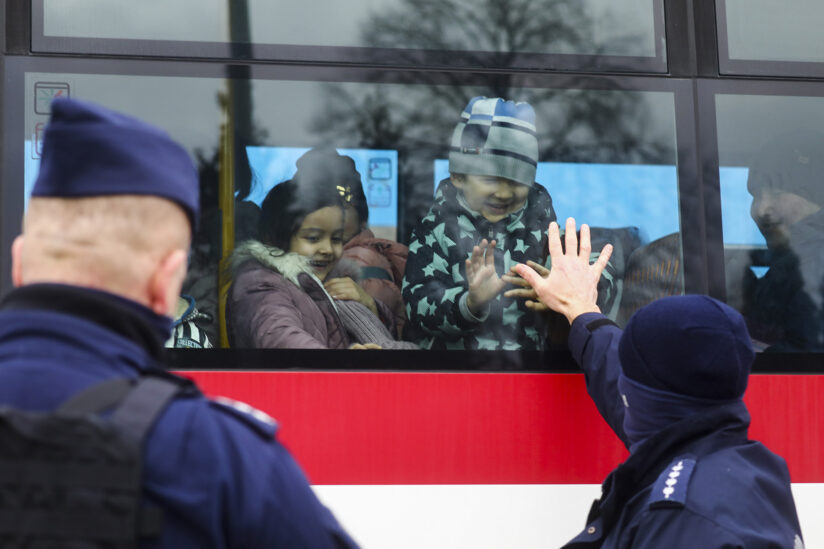
More than 2.5 million Ukrainians have fled to neighboring countries as Russia has launched attacks against civilians to capture their homeland — and more are expected to leave.
As the violence escalates, USC experts say that reports of Russian war crimes against civilians are flooding into the U.N. Security Council for referral to the International Court of Justice in The Hague. The allegations include sexual assault and unlawful targeting of civilians in places such as schools, hospitals and utilities.
Those crimes and the massive displacement of Ukrainians “may amount to crimes against humanity,” said Hannah Garry, the founder of the International Human Rights Clinic at USC Gould School of Law. “Russia’s threats to wipe out Ukrainian statehood and national identity could amount to claims of genocide.”
Horrific memories of war refugees in the former Yugoslavia’s civil war
For David Schwartz, the war is triggering horrific memories of the 1990s civil war in former Yugoslavia. An associate professor of psychology at USC Dornsife College of Letters, Arts and Sciences, Schwartz served as a consultant to the United Nations’ aid organization UNICEF after the war, amid international rebuilding efforts to help the people of what became Croatia and Bosnia. He saw firsthand how trauma scars children and their families for generations and decades following war.
“The parallels between the Russian invasion of Ukraine and the horrific events of World War II and the Cold War seem apparent,” Schwartz said. “However, an even clearer connection may exist with more recent events in modern Europe. In the early 1990s, Bosnia and Herzegovina sought to establish a multiethnic nation from the ashes of the former Yugoslavia. A brutal civil war then ensued, marked by genocide, the systematic murder of unarmed civilians, mass rape and ethnic cleansing.”
Many of the Ukrainian refugees are fleeing to Poland. Faculty fellow Katarzyna Pisarska, from the Center on Public Diplomacy at USC Annenberg School for Communication and Journalism, has been assisting them.
“There is this connection between Poland and Ukraine, which I think also plays a very important role in the war [that] is happening as we speak. We already had 2 million Ukrainians living in Poland before the war,” said Pisarska, who is also the founder and director of the European Academy of Diplomacy in Poland. “Poland actually over the last few years issued the highest number of work visas for citizens outside of the European Union — higher than any other EU country.”
Will the U.S. welcome Ukraine refugees?
The question many policy analysts are wondering about is whether the United States will also open its arms to Ukrainian refugees.
“Advocates will pay close attention to whether and how the Biden administration creates a safe pathway for those fleeing Ukraine, and whether these next steps incorporate best practices learned in the wake of the Afghan evacuation in August 2021,” said Henna Pithia, a visiting clinical professor at USC Gould School and leader of the school’s International Human Rights Clinic.
“Of note, many will be watching to see what happens to the [U.S. Citizenship and Immigration Services] Humanitarian Parole program and whether refugee processing abroad can be expedited,” she said. “Similarly, many will look to whether the U.S. government will offer expedited consular services for Ukrainian nationals in third countries, and whether the United States will grant Ukrainian nationals temporary protected status here in the United States.”
For war refugees, the trauma continues
Schwartz worries most about the children of Ukraine. He said the international community should do everything possible to end the war.
He knows trauma does not end when the war ends.
“A new generation of traumatized children and adolescents will need considerable services as they recover from the impact of exposure to war violence, flight from their homes, and forced separation from family members and friends,” Schwartz said.
“Put simply, these youth will need to learn how to move forward in a world that has fundamentally changed. The tasks ahead are formidable, and the world must respond with a multipronged mental health intervention.”